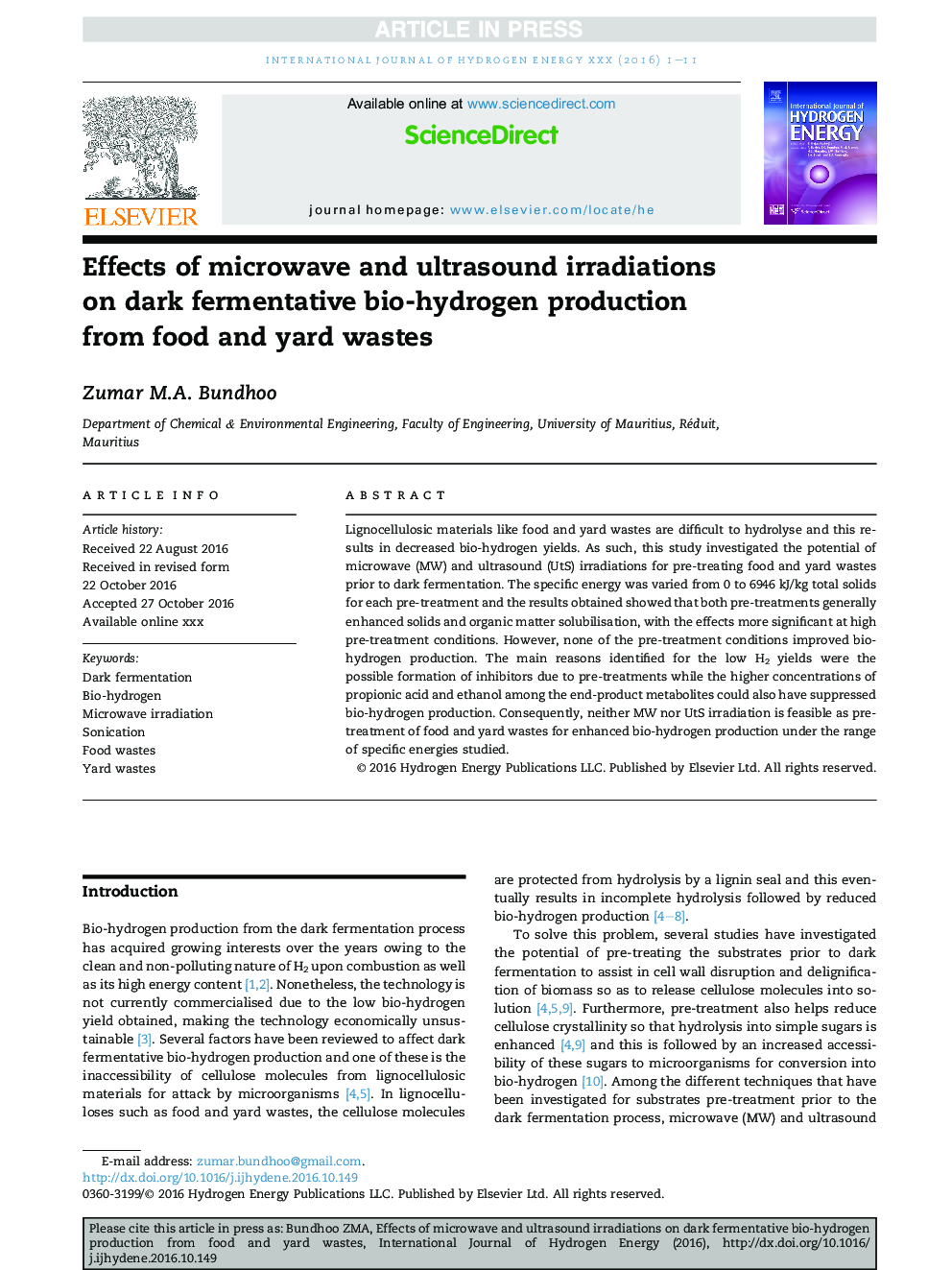| Article ID | Journal | Published Year | Pages | File Type |
|---|---|---|---|---|
| 5146322 | International Journal of Hydrogen Energy | 2017 | 11 Pages |
Abstract
Lignocellulosic materials like food and yard wastes are difficult to hydrolyse and this results in decreased bio-hydrogen yields. As such, this study investigated the potential of microwave (MW) and ultrasound (UtS) irradiations for pre-treating food and yard wastes prior to dark fermentation. The specific energy was varied from 0 to 6946Â kJ/kg total solids for each pre-treatment and the results obtained showed that both pre-treatments generally enhanced solids and organic matter solubilisation, with the effects more significant at high pre-treatment conditions. However, none of the pre-treatment conditions improved bio-hydrogen production. The main reasons identified for the low H2 yields were the possible formation of inhibitors due to pre-treatments while the higher concentrations of propionic acid and ethanol among the end-product metabolites could also have suppressed bio-hydrogen production. Consequently, neither MW nor UtS irradiation is feasible as pre-treatment of food and yard wastes for enhanced bio-hydrogen production under the range of specific energies studied.
Related Topics
Physical Sciences and Engineering
Chemistry
Electrochemistry
Authors
Zumar M.A. Bundhoo,
